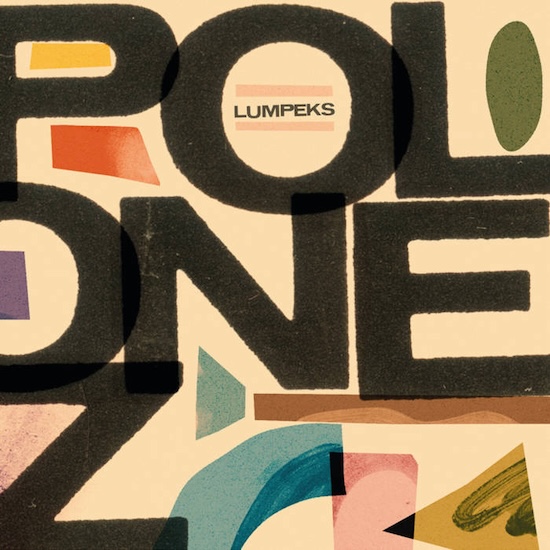If I were to recall my best concert experience, one of them would undoubtedly be the moment when Louis Laurain and Pierre Borel spread around the Centre of St John, an old 15th-century church in Gdańsk, dribbling sound down the side aisles and around the altar on the opposite side from the stage.
They were drawn there by Sebastien Beliah and Olga Kozieł, who decided to look at Polish folk music through the prism of the jazz idiom in Lumpeks. I am mentioning the concert situation to point out that this quartet, despite taking traditional music as their starting point, has broad purposes in their music. Kozieł is a singer, and since 2005, he has been learning to sing from Polish village singers and listening to archive recordings. She plays the baraban, a bass drum, whereas Beliah plays the double bass. Together with Laurain and Borel, they aim to create music based on tradition but find common elements with improvisation.
For nearly a decade, the three French mentioned above have played in Umlaut Big Band, which has been exploring the historical repertoire of the big bands of Mary Lou Williams, Duke Ellington, and Benny Carter, among others. They do not just replay the originals but show how crucial new arrangements and reinterpretations are. In Lumpeks, the path is similar, with these creative musicians showing off their backgrounds in different experimental projects (like this extraordinary Laurain trumpet preparations).
Lumpeks build their repertoire from an anonymous stock of old Polish folk tunes and transform their forms and rhythms with the sophisticated textures of modern jazz. They choose music from the center of Poland: Radomszczyzna, Opoczyńskie, Rawskie, sometimes finding the melodies in Andrzej Bieńkowski’s archives or on albums of traditional music from various regions of Poland. Polonez, the evocative title of their second album, reminds me of a popular dance – next to the mazurek and krakowiak, the oldest one in Poland. It’s also the famous 80s Polish car model, now regarded with nostalgia. Lumpeks means second-hand in Polish, and that reflects well on the band’s philosophy, which has reworked dusty melodies into original creations.
‘Tête deux chevals’, a song about love, working in the fields, and waiting for Sunday to dance, exposes the theme at the beginning, which then moves into trance form with a drum, bow strokes with clapping, and Laurain’s bird calls in the background. The ritualistic ‘Le souterrain’ is a slowed-down trance, dance-infused, in which percussion and woodwinds shout, wailing. In ‘Niedziela na basynie’, you can find the colourful play of a creaking drone box and the metallic tapping of brass valves. ‘Dimanche au téléphone,’ a song about the anticipation of the weekend party, is centred around the brass roaring, thickening through the drum and bow strokes on the double bass. But they can go heavier: the trance of ‘Double Polka’ comes from the exposition of the theme into some dark folk à la Lankum, whereas ‘Piątek w domu’ reminds me of Yann Gourdon’s hurdy gurdy drones.
Lumpeks focuses on a musical encounter between traditional Polish music and jazz idioms: the hypnotic rhythms of mazurkas meet the powerful expression of free improv, and the sinful melodies of obereks find new light in this orchestration. They do not reinterpret but play their way. They look for common points between folk and jazz: swung time, triplet rhythms, frenetic violin playing like free saxophone, paying attention to detail, and improvising.
You wouldn’t call them a folk band, but rather a reincarnation of Ornette Coleman’s quartet, improvising in the central Poland countryside, with other instruments in the line-up. The group doesn’t just take traditional melodies on which they prepare jazz arrangements. They focus on details and the unique sound of instruments and try to recreate them, playing noisily like country fiddlers, letting themselves be carried away in a jazz manner by the frenzy of folk music.


